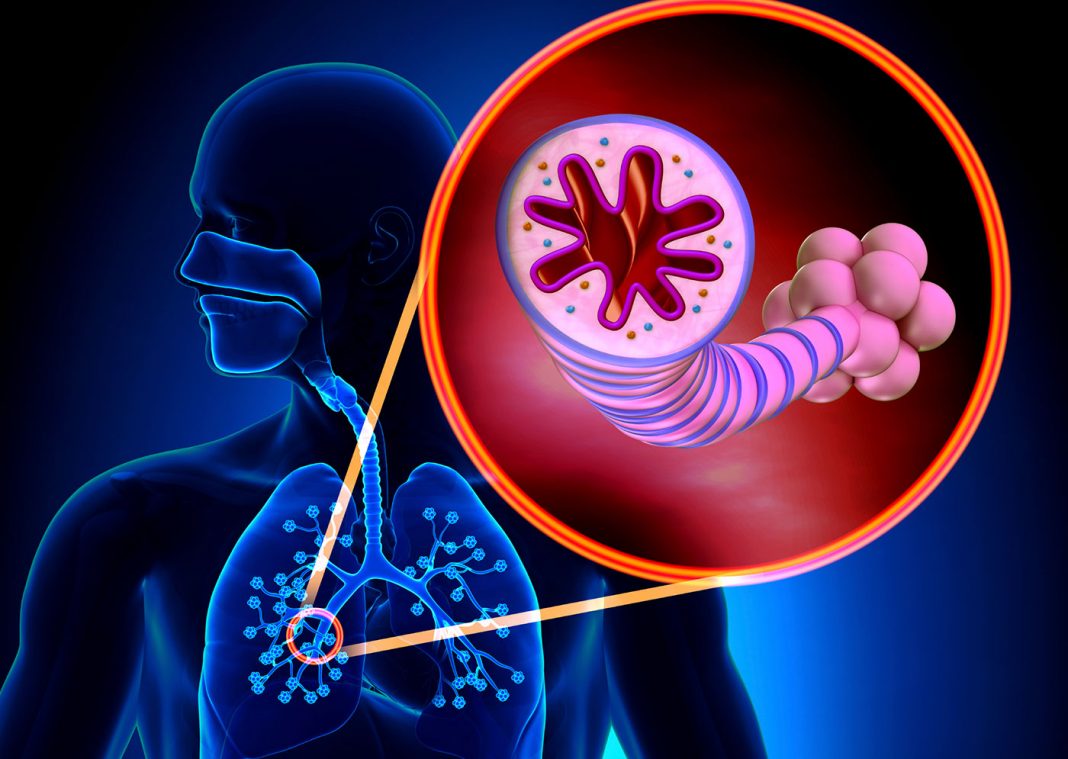Scientists from Trinity College Dublin day they have made a breakthrough that may eventually lead to improved therapeutic options for people living with asthma. The researchers have uncovered a critical role for a protein (Caspase-11), which had previously never been implicated in the disease. Their study “Caspase-11 promotes allergic airway inflammation” appears in Nature Communications.
Caspase-11 is a protein with an important role in defending against bacteria, but the team in Trinity has found that when it is over-active it can provoke a damaging inflammatory reaction.
“Activated caspase-1 and caspase-11 induce inflammatory cell death in a process termed pyroptosis. Here we show that Prostaglandin E2 (PGE2) inhibits caspase-11-dependent pyroptosis in murine and human macrophages. PGE2 suppresses caspase-11 expression in murine and human macrophages and in the airways of mice with allergic inflammation. Remarkably, caspase-11-deficient mice are strongly resistant to developing experimental allergic airway inflammation, where PGE2 is known to be protective. Expression of caspase-11 is elevated in the lung of wild type mice with allergic airway inflammation,” write the investigators.
“Blocking PGE2 production with indomethacin enhances, whereas the prostaglandin E1analog misoprostol inhibits lung caspase-11 expression. Finally, alveolar macrophages from asthma patients exhibit increased expression of caspase-4, a human homologue of caspase-11. Our findings identify PGE2 as a negative regulator of caspase-11-driven pyroptosis and implicate caspase-4/11 as a critical contributor to allergic airway inflammation, with implications for pathophysiology of asthma.
“Caspase-11 can cause cells to die, which is a very inflammatory event as the cells then release their contents, which can irritate tissues in our body,” says Zbigniew Zasłona, PhD, lead author. “We have found that Caspase-11 is a key driver of inflammation in the airways in asthma. This causes the signs and symptoms of asthma which most notably involves difficulty breathing.”
Although symptoms of mild asthma can be managed with current therapies, severe asthma remains very difficult to treat and asthma rates are constantly on the rise.
“A variety of irritants such as airborne pollutants, certain types of pollen, and house dust mites can induce cell death in the lungs. Our work suggests that Caspase-11 is sensing these noxious things and causing disease,” adds Zasłona.
“Caspase-11, or it’s human equivalent, which is Caspase-4, has never been implicated in asthma before so we think it holds great promise as a possible target for new drugs to treat this common, debilitating disease,” notes the team leader, Luke O’Neill, PhD, professor of biochemistry in the School of Biochemistry and Immunology in the Trinity Biomedical Sciences Institute.


